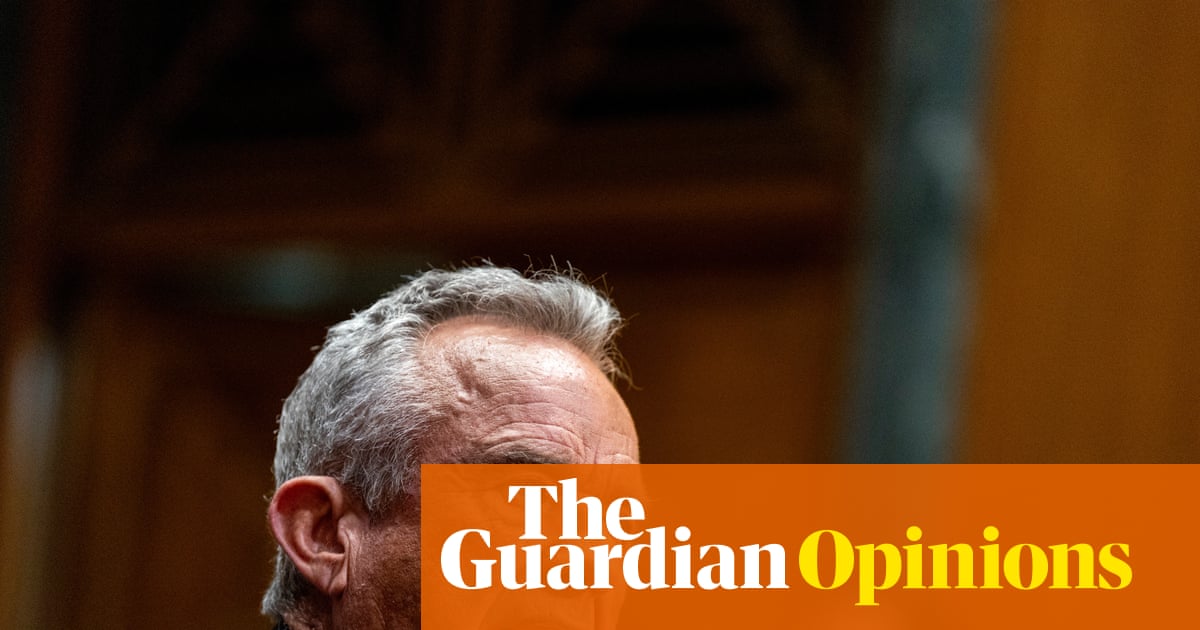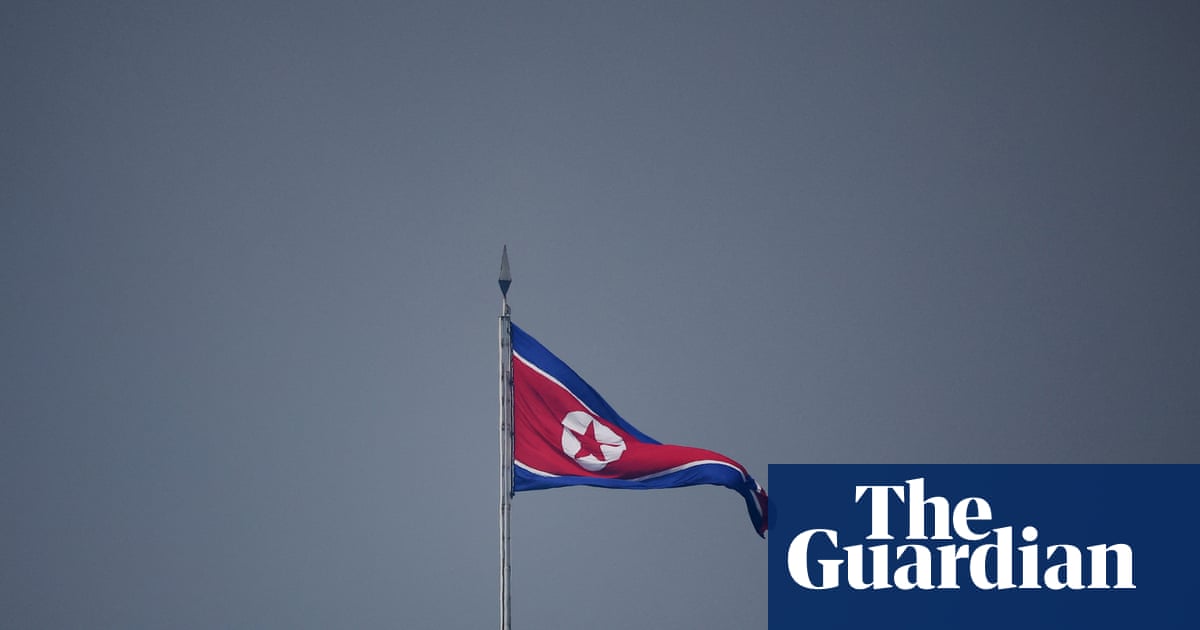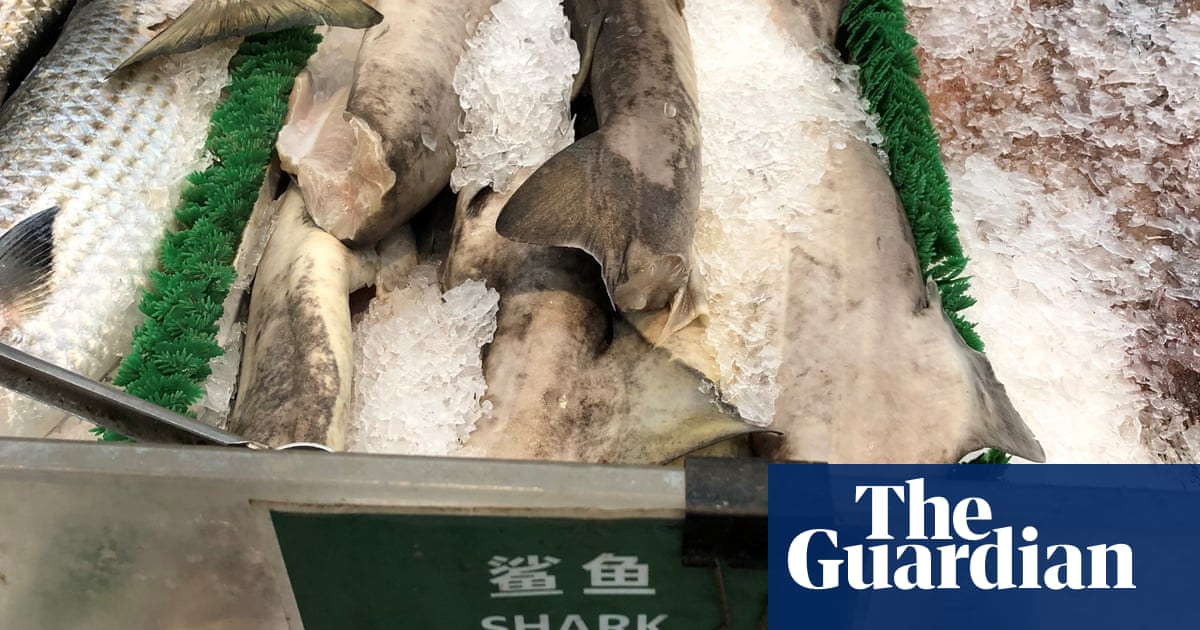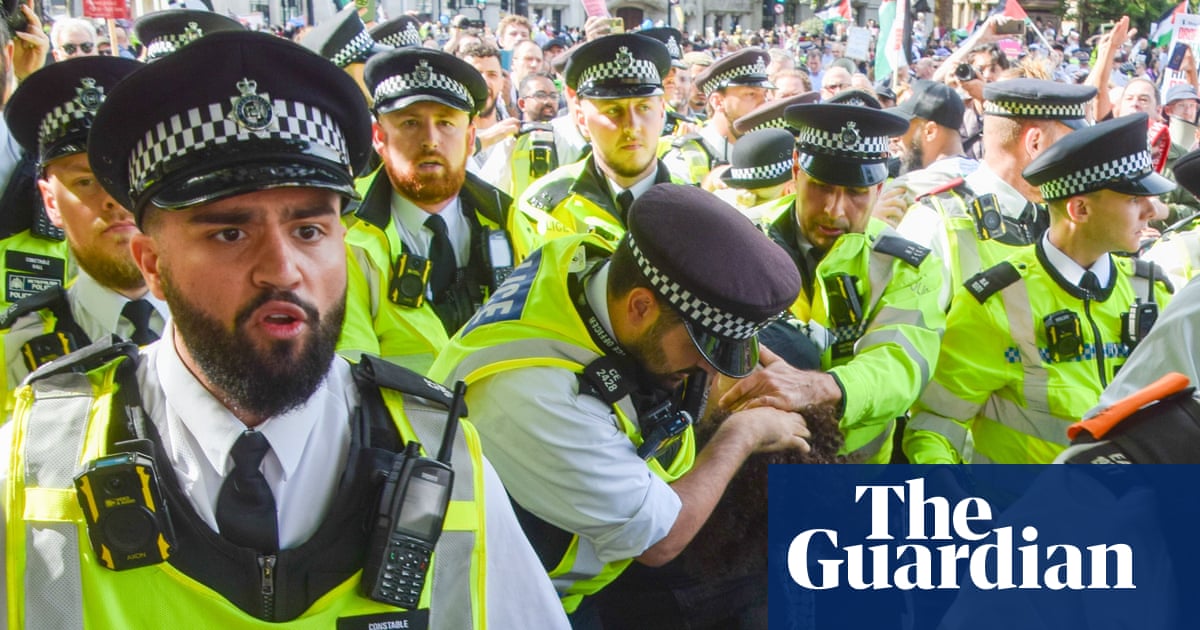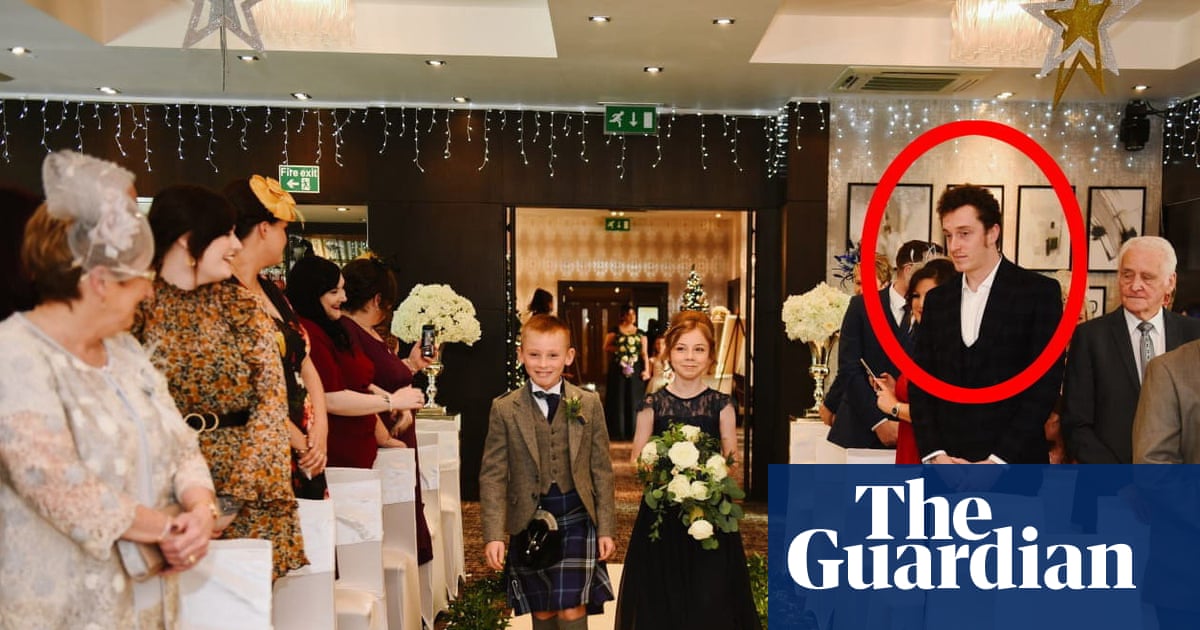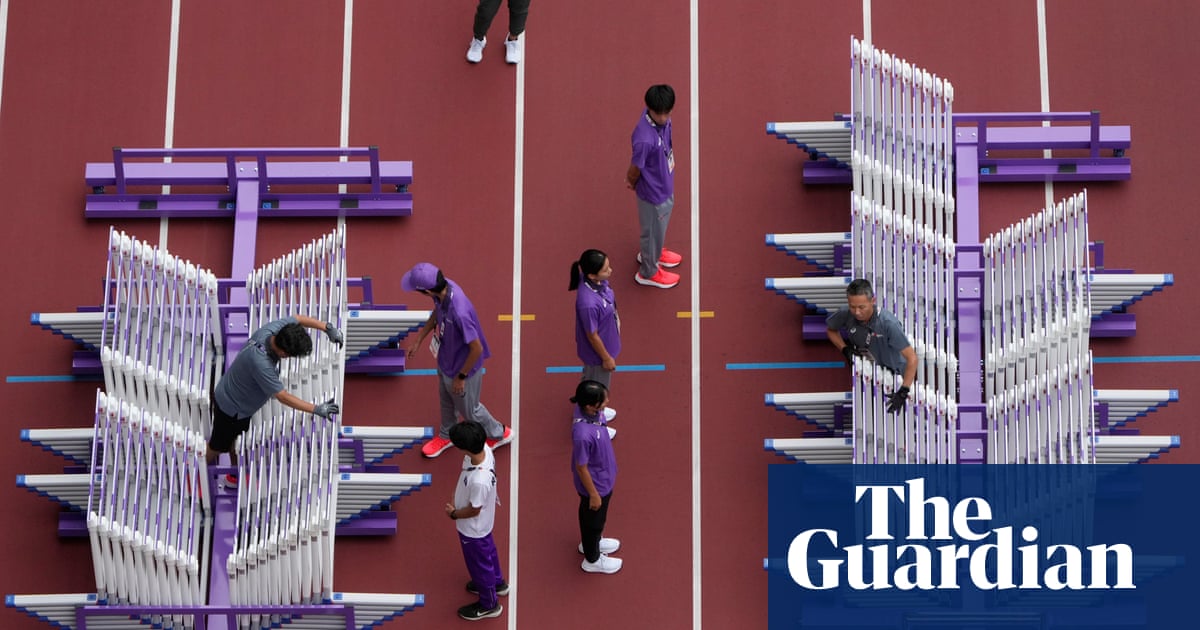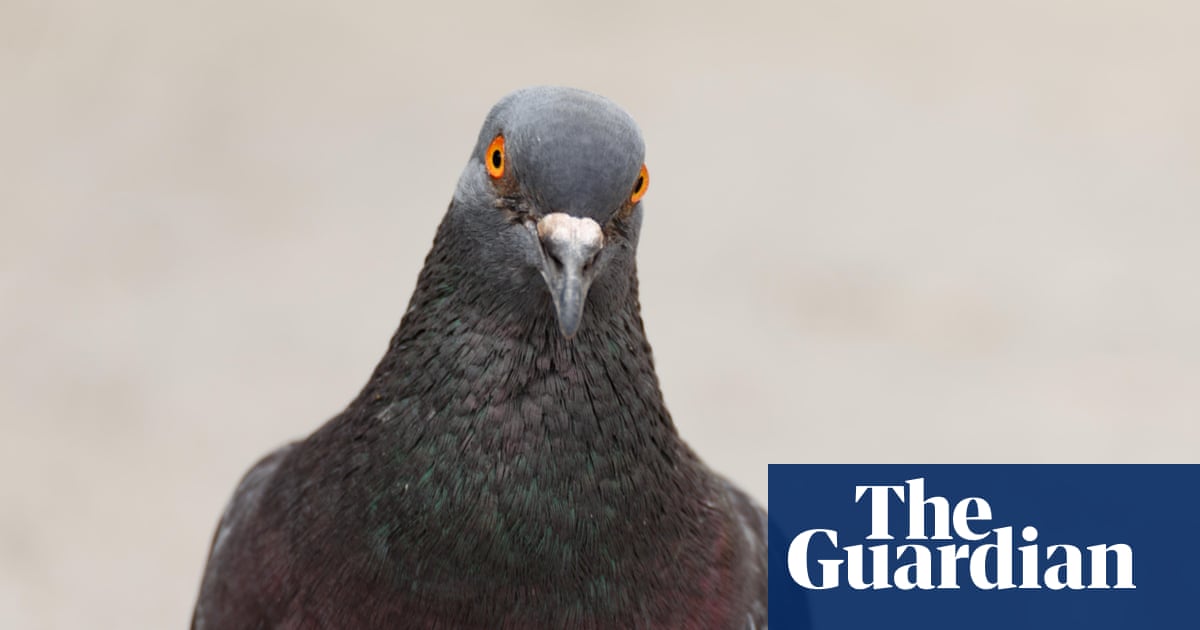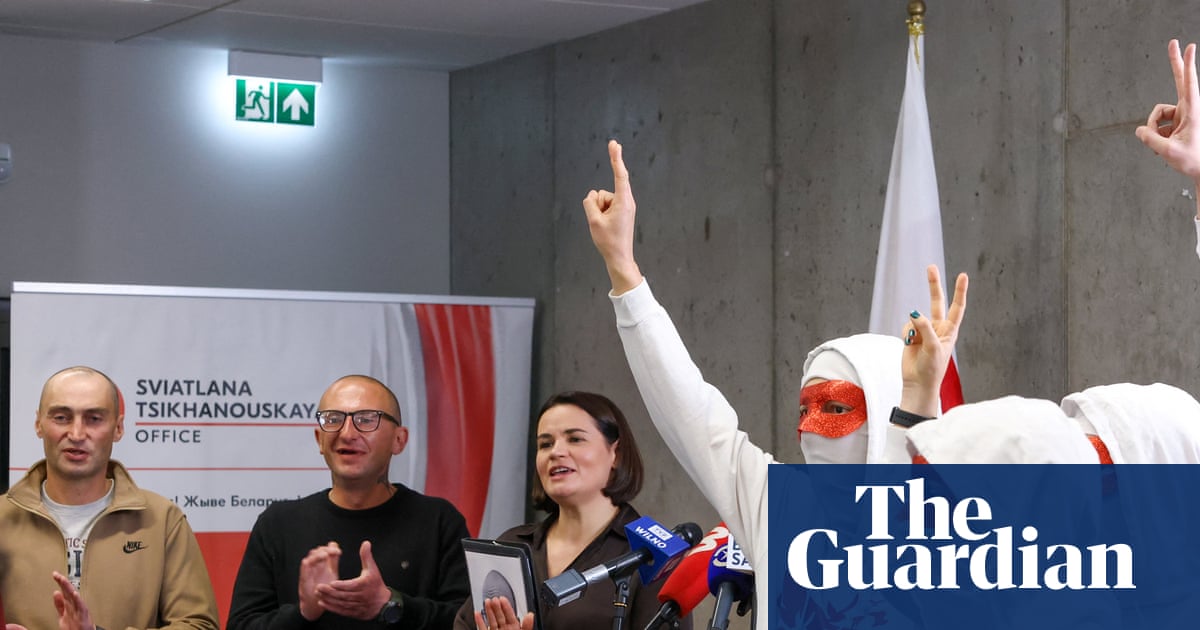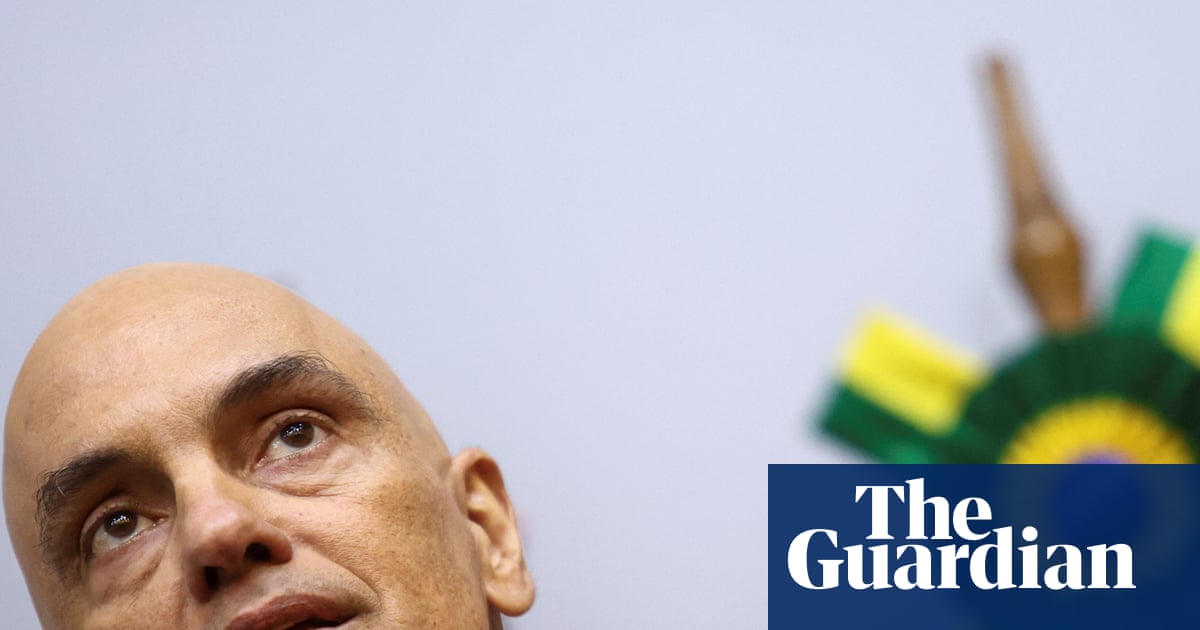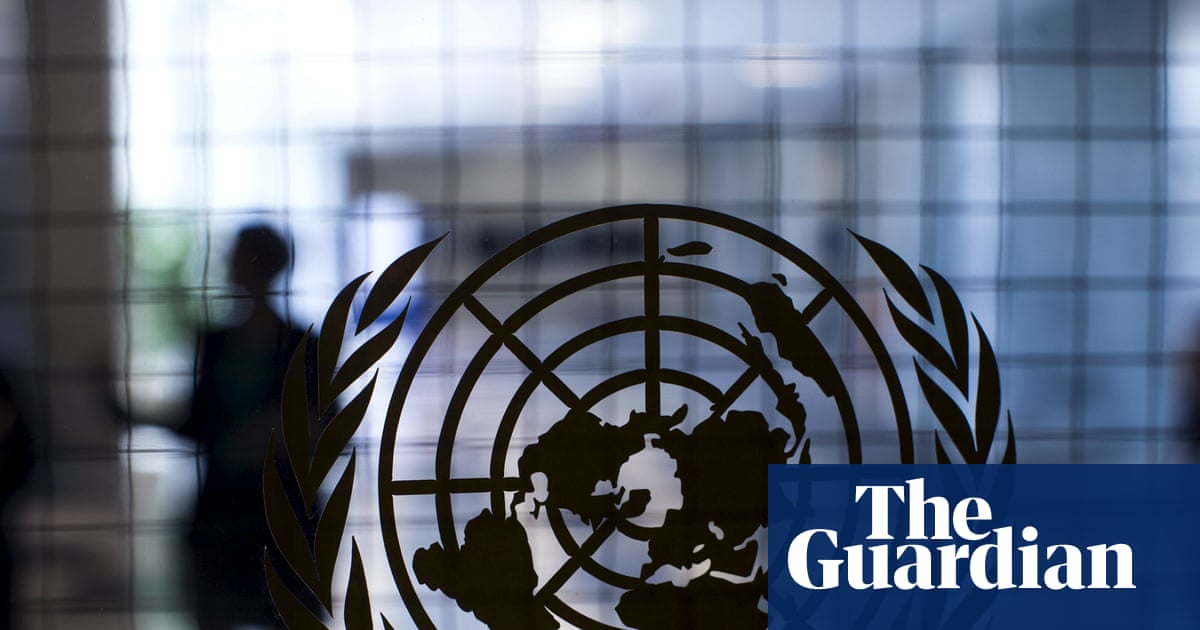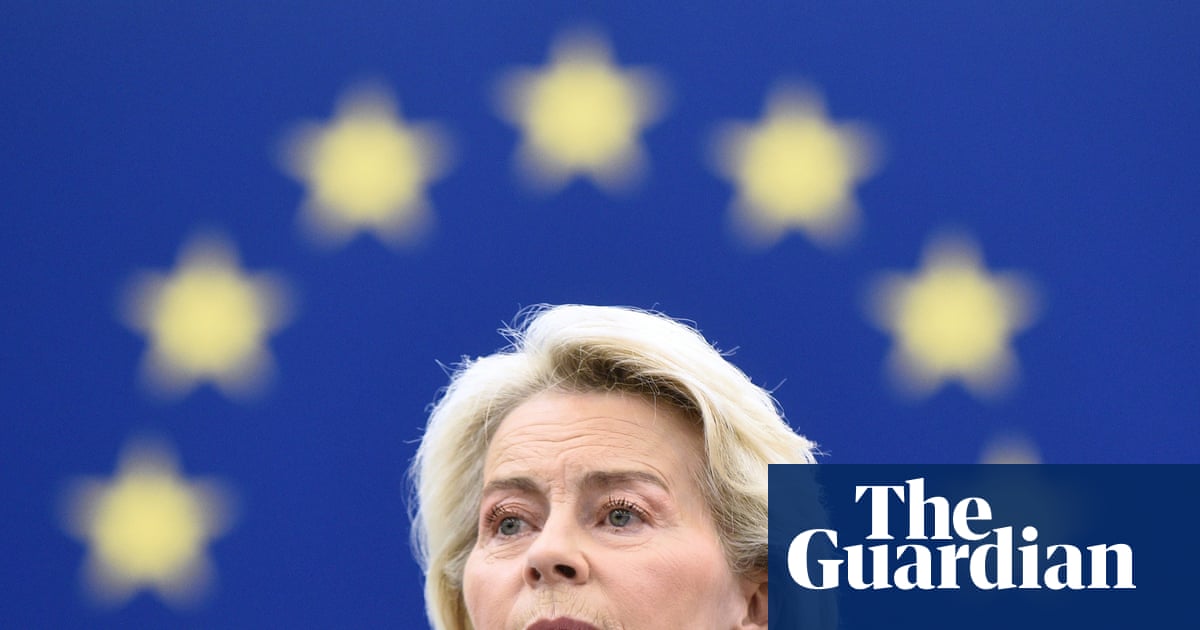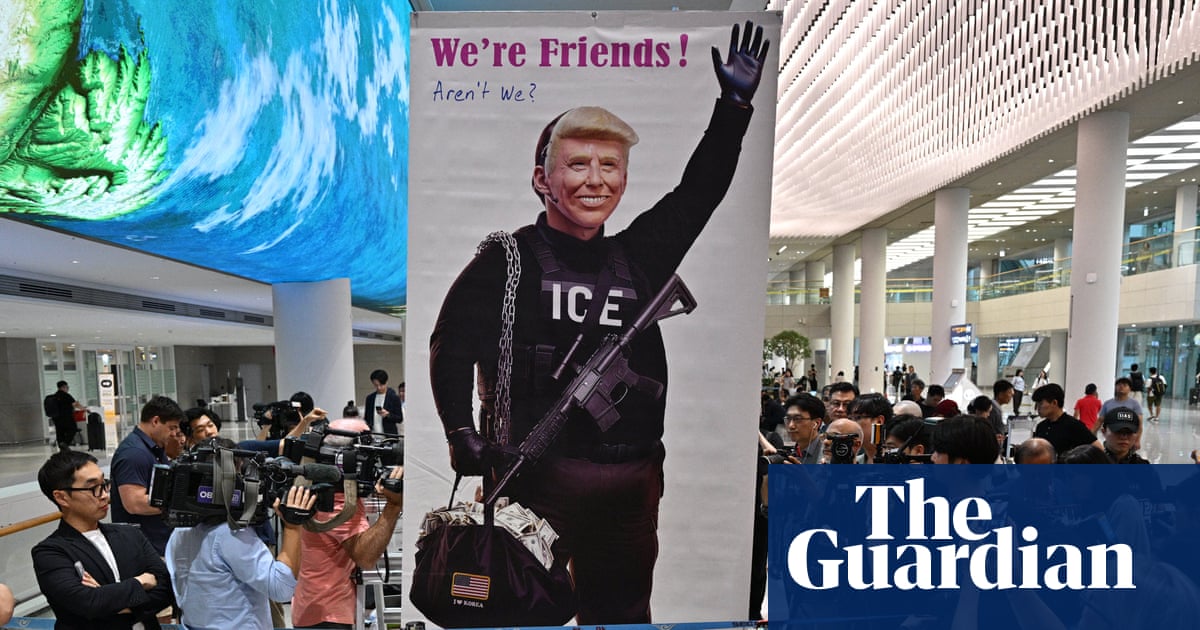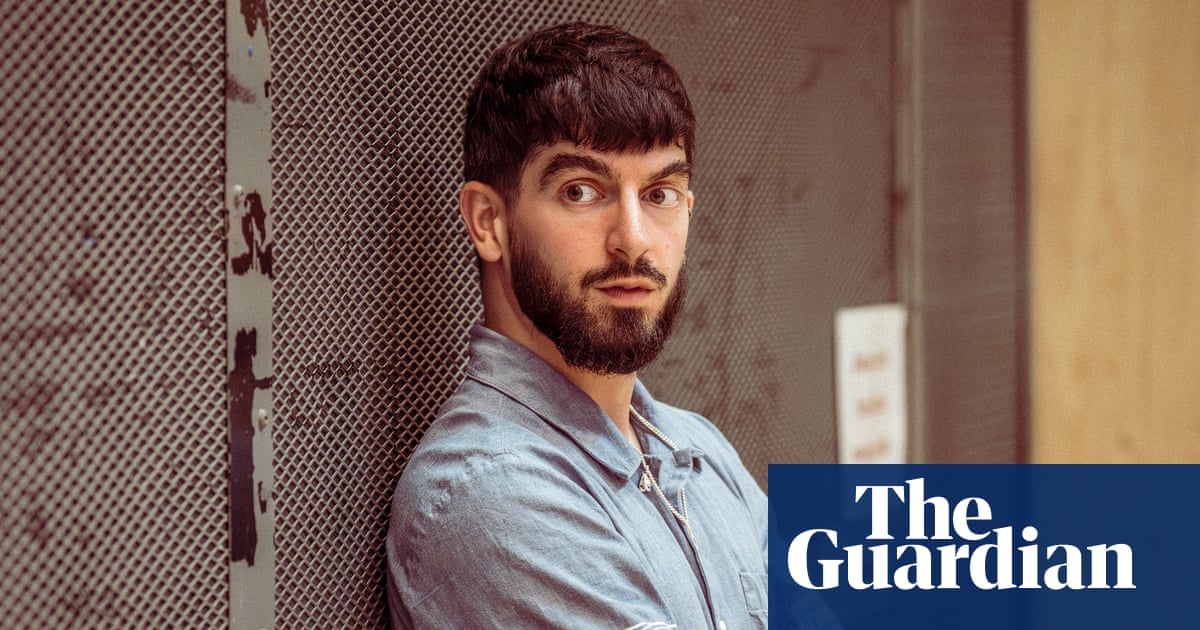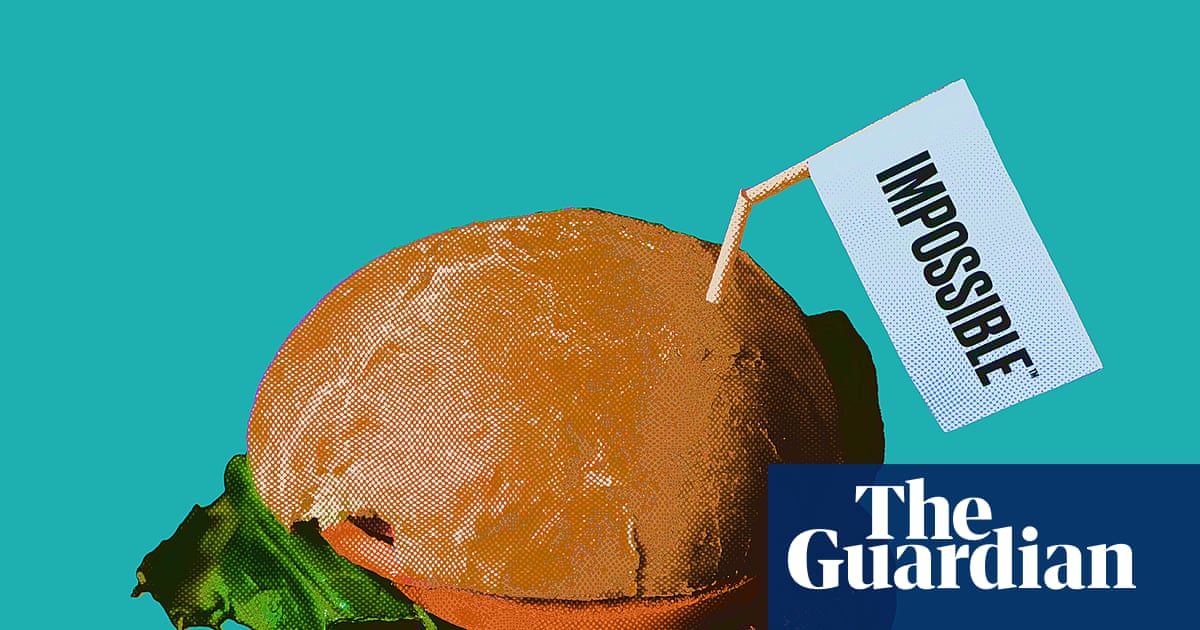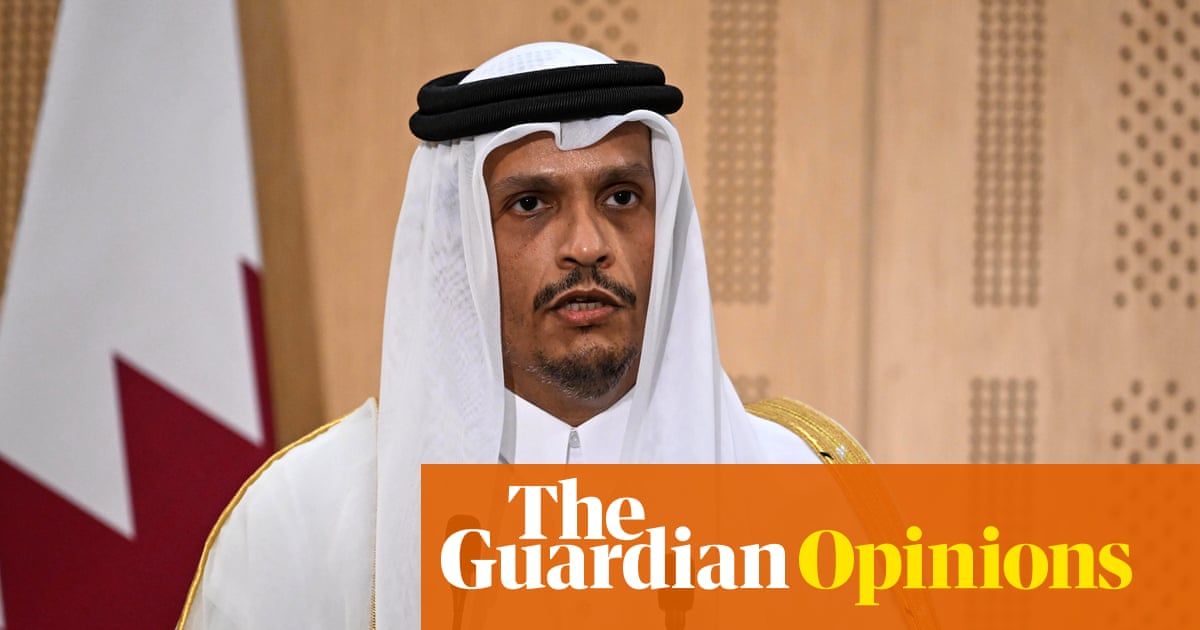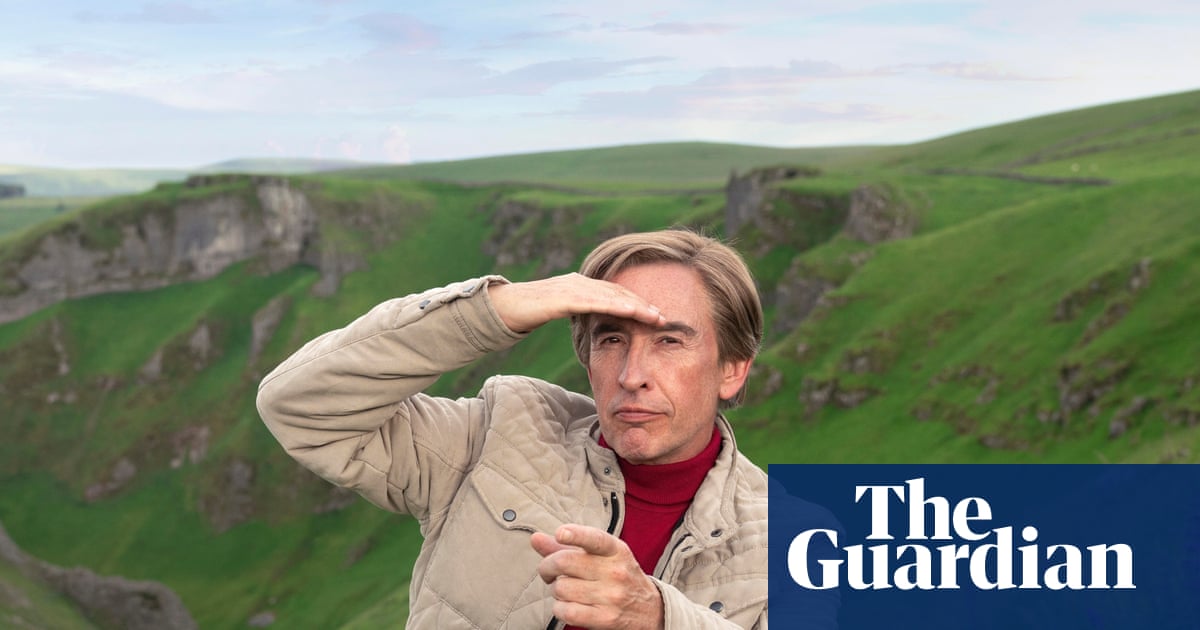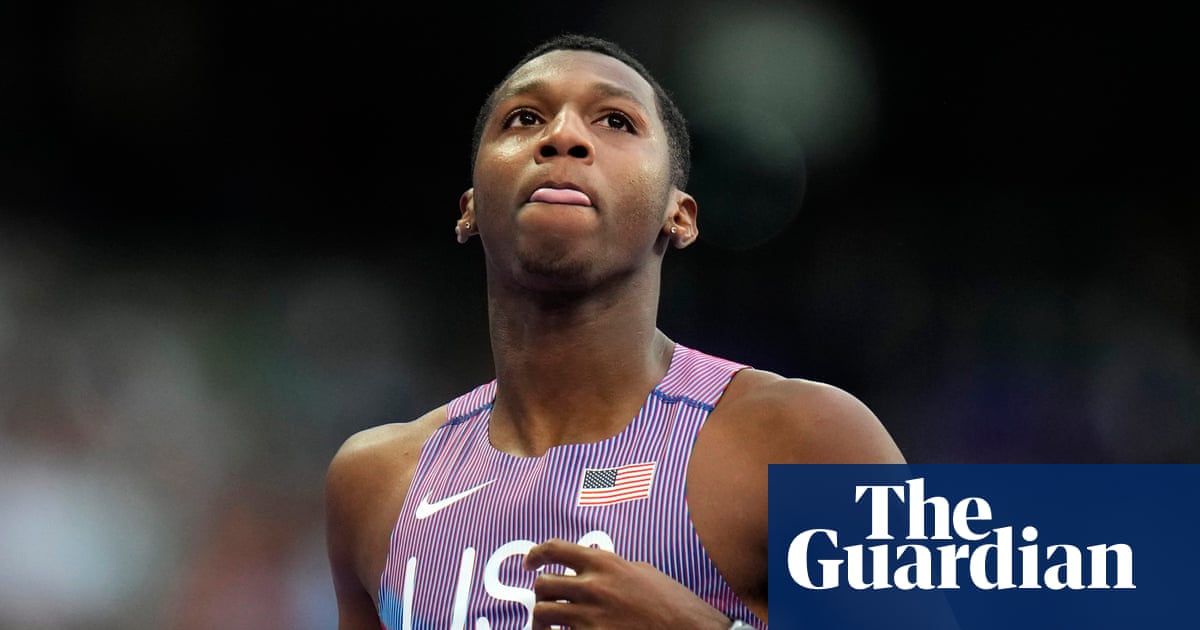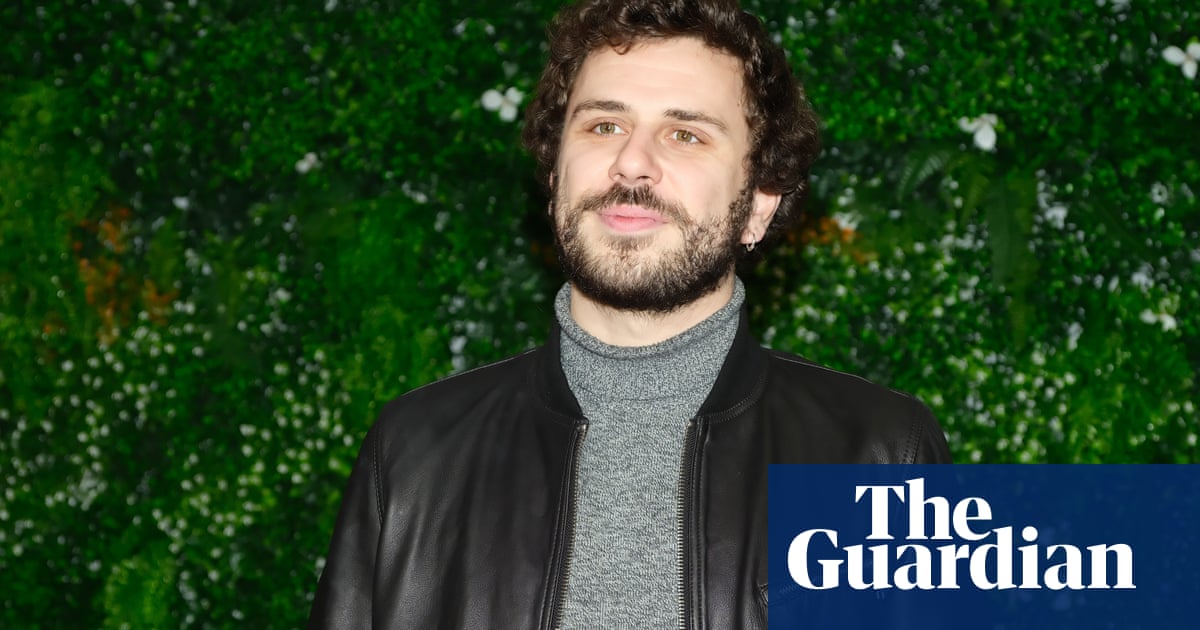Russia says traffic on Crimea bridge temporarily suspended
Road traffic on the bridge linking Russia and the Crimean peninsula has been temporarily suspended, Russian authorities said on Telegram on Tuesday.
Ukraine’s SBU security service said on Tuesday it had hit the road and rail bridge with underwater explosives.
Key events Show key events only Please turn on JavaScript to use this feature
Nato to force UK to lift defence spending to 3.5% of GDP to appease Trump, say sources

Dan Sabbagh
Dan Sabbagh is the Guardian’s defence and security editor
Defence sources believe that Britain will be forced to sign up to a target of lifting defence spending to 3.5% of GDP by 2035 at this month’s Nato summit after a campaign by the alliance’s secretary general to keep Donald Trump onboard.
One senior insider said Britain would “without a doubt” sign up to a proposal from the Nato chief, Mark Rutte, to lift allies’ defence spending, which would represent a real-terms increase of about £30bn from the Labour government’s plan.
They expressed surprise that Keir Starmer had tied himself up over spending at the launch of the strategic defence review on Monday, when he refused to set a firm date when budgets would increase to 3%.
The prime minister has agreed to increase defence spending from its current 2.33% of GDP to 2.5% by 2027 and to 3% in the next parliament, which was the spending context for Monday’s 140-page strategic review.
You can read the full story here:
Ukraine’s Security Service said it had hit the Kerch Bridge in Crimea with underwater explosives. Here is a video showing the explosion:
Russia’s embassy in London said on Tuesday that Moscow had no intention of attacking Britain, rejecting accusations by the British government of growing aggression and daily cyber-attacks.
Britain said on Monday it would radically change its approach to defence to address new threats, including from Russia, after endorsing the findings of an independently produced Strategic Defence Review, Reuters reports.
After unveiling the defence overhaul on Monday, Healey said Europe was facing war, growing Russian aggression, new nuclear risks and daily cyber-attacks.
Russia’s embassy issued a statement on Tuesday criticising what it described as “a fresh salvo of anti-Russian rhetoric”.
“Russia poses no threat to the United Kingdom and its people,” the statement said. “We harbour no aggressive intentions and have no plans to attack Britain. We are not interested in doing so, nor do we need to.”
Russia says traffic on Crimea bridge temporarily suspended
Road traffic on the bridge linking Russia and the Crimean peninsula has been temporarily suspended, Russian authorities said on Telegram on Tuesday.
Ukraine’s SBU security service said on Tuesday it had hit the road and rail bridge with underwater explosives.
Russia says it has started restoring electricity to Zaporizhzhia after Ukrainian attack
Yevgeny Balitsky, the Russian-installed head of the Zaporizhzhia region in southern Ukraine, said the process of reconnecting consumers to the power grid was under way after a Ukrainian attack left people without power.
Balitsky said on Telegram that around 20% of the more than 600,000 people left without electricity now had power again.
At least 700,000 people in parts of two Ukrainian regions controlled by Russia lost power as a result of attacks by Ukrainian forces, Russia’s news agencies reported early on Tuesday.
Ukraine’s SBU security service said on Tuesday it had hit the road and rail bridge linking Russia and the Crimean peninsula below the water level with explosives.
The SBU said in a statement on the Telegram app that it had used 1100 kilograms of explosives which were detonated early in the morning, damaging underwater pillars of the bridge, a key supply route for Russian forces in Ukraine.
Italian prime minister Giorgia Meloni and France’s president Emmanuel Macron will aim to reconcile their difference in talks in Rome on Tuesday, according to AFP.
The European rivals are meeting in the Italian capital from 18.00 GMT for talks and then dinner, an encounter Macron said he had initiated.
The centrist president and nationalist far-right Meloni are not natural political allies but as the leaders of two of the EU’s largest economies, they face similar challenges in the Ukraine war and US president Donald Trump’s sweeping tariffs against the bloc.
Meloni on Friday acknowledged “divergences” with Macron but denied she had any “personal problems” with him.
Macron’s office said Italy was “an important partner” with “a crucial role to play in European decisions”, particularly in the Ukrainian conflict.
Following on from the announcement earlier today that a vote of confidence in the Polish government will take place on 11 June, the Polish prime minister Donald Tusk said the vote was due to a “new political reality” facing the country.
He requested the vote after his political ally, the liberal Warsaw mayor, lost Poland’s weekend presidential election to conservative Karol Nawrocki.
The Kremlin has today also commented on the elections saying that it did not expect the victory of Nawrocki to lead to better ties between Moscow and Warsaw, according to AFP.
“We can’t expect a politician to come to power with a broader political vision that could prompt a reconsideration as to the normalisation of relations with their neighbours, including Russia.”
Earlier this morning in our Ukraine coverage we reported that Ukrainian president Volodymyr Zelenskyy has commented on the deadly Russian airstrike on Sumy earlier today, which he called a “savage” assault that deliberately targeted civilians on “ordinary streets”.
The Ukrainian leader said “many people have been wounded” and that at least three people have been killed.
He said the attack showed that Russia is not serious in pursuing peace. Zelenskyy wrote on X:
It is obvious: without global pressure – without decisive actions from the United States, Europe, and everyone in the world who has the power – Putin will not agree even to a ceasefire.
Not a single day goes by without Russia striking Ukrainian cities and villages. Every day, we lose our people to Russian terror. Every day, Russia gives new reasons for tougher sanctions and stronger support for our defence.
I am grateful to everyone around the world who is promoting exactly this agenda: sanctions for aggression and the killing of people, and assistance in defending the lives of Ukrainians.
Meanwhile, at least 700,000 people across a swathe of southern Ukraine controlled by Russian forces were without power on Tuesday after Ukrainian drone attacks and shelling knocked out electricity substations, Russia-installed officials claimed.
There was no immediate comment from Ukraine, but the attack, which targeted the Zaporizhzhia and Kherson regions, appeared to be one of the largest of its kind on Russian-held territory since the war began in February 2022.
The drone attacks came hours after Russian and Ukrainian delegations met in Turkey for peace talks where Moscow said it would only agree to end the war if Kyiv cedes big new chunks of territory and accepts limits on the size of its army.
Kremlin says meeting between Putin, Zelenskyy and Trump is 'unlikely' to happen anytime soon
The Kremlin says it is “unlikely” a meeting between Russian president Vladimir Putin, his Ukrainian counterpart, Volodymyr Zelenskyy, and US president Donald Trump would take place soon.
“In the near future, it is unlikely,” Kremlin spokesperson Dmitry Peskov told reporters when asked about the chances of a meeting, adding that such a summit could only happen after Russian and Ukrainian negotiators reach an “agreement”.
The White House said yesterday that Trump was “open” to an invitation by the Turkish president, Recep Tayyip Erdoğan, to hold three-way peace talks in Turkey with the Russian and Ukrainian leaders.
Zelenskyy last month challenged Putin to meet him personally in Istanbul after the Russian president rejected a demand from Ukraine and European allies to sign up to a 30-day ceasefire.
Putin didn’t turn up. Russia’s delegation was instead headed by presidential aide Vladimir Medinsky, who led today’s talks for Moscow.

Czech opposition party says it will call no-confidence vote in government
Now to some political turmoil in the Czech Republic … the opposition ANO party plans to call a no-confidence vote in the Czech government after the justice minister resigned over accepting a $45m bitcoin gift for the ministry from an ex-convict, deputy ANO chief Karel Havlicek said earlier today.
Reuters has this report:
The minister, Pavel Blazek, a lawyer and veteran senior official in prime minister Petr Fiala’s centre-right Civic Democrats party, denied doing anything illegal in his decision to accept the gift – which was part of bitcoin holdings returned to the former convict after he served a jail sentence.
The scandal is a further setback for the government which has been trailing the opposition, led by the populist ANO party, in opinion polls before an election set for October 3-4.
“Unless something absolutely exceptional happens, we will trigger a no-confidence vote,” Havlicek, whose party has enough members of parliament to force a no-confidence motion, said on Czech Television. “There is no other option.”
The donation was 30% of bitcoin holdings of the ex-convict that had been confiscated with hardware and frozen for about decade, while bitcoin value soared.
A court ordered the release of the hardware after the person served his sentence, Czech media reported. It was not clear why the person agreed to the gift and he declined to comment to Czech media.
Polish government confidence vote will take place on 11 June - prime minister
There is also a huge amount of political uncertainty in Poland after right-wing historian Karol Nawrocki was narrowly elected to become the country’s new president on Sunday.
Although the role is largely ceremonial, Nawrocki is likely to use his presidential power of veto to block the pro-EU programme of the Polish prime minister, Donald Tusk.
Tusk, a former European Council president, returned as Poland’s prime minister in 2023, leading a broad coalition that defeated the rightwing populist party Law and Justice (PiS).
Tusk said on Monday that he will call a vote of confidence in his government to try to shore up support for his coalition after the bruising setback in Poland’s presidential election.
He has now confirmed that the vote of confidence in the Polish government will take place on 11 June.
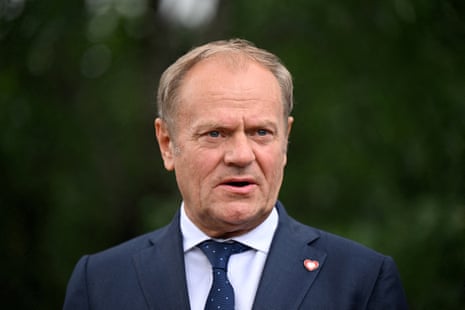
How could Wilders's exit from the coalition impact Dutch defence spending?
Geert Wilders’s decision could delay a decision on a boost in defence spending to meet new Nato targets, and would leave the Netherlands with only a caretaker government when it receives world leaders for a Nato summit in The Hague later this month.
The coalition government has previously committed to average annual spending of €3.5bn (£2.95bn) for military support for Ukraine.
The current Nato spending target on defence is of at least 2% of GDP, but the alliance’s secretary general, Mark Rutte, who used to be the Dutch prime minister, has indicated that a new benchmark of 5% will be announced soon.
Dutch defence minister Ruben Brekelmans told Euronews in April that the government was spending “around 2%” of GDP on its defence.
The Nato summit has taken on a heightened importance as European countries scramble to bulk up security amid continued Russian aggression and the withdrawal of the traditional American security blanket under the Trump administration.
Discussions at the June 24-25 summit are expected to focus on defence spending and strengthening the defensive industrial base.
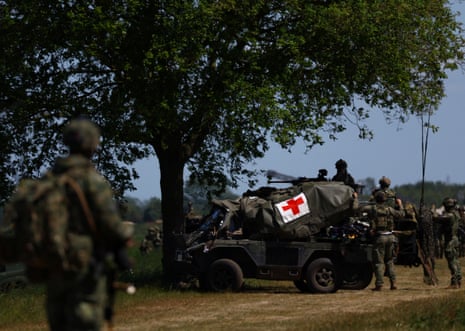
The Guardian’s Europe correspondent, Jon Henley, has some detail about the reaction of Geert Wilders’ (now former) coalition partners to him leaving the government, a move that will likely trigger snap elections. Here is an extract from his write up:
Wilders said the partners refused to adopt his 10-point plan for halting immigration for the purpose of seeking asylum, as he had demanded last week. Legal experts have said several of the proposals are in breach of European human rights laws or the UN refugee convention, to which the Netherlands is a signatory.
Dilan Yeşilgöz, the leader of the liberal-conservative VVD party, a coalition member, said prime minister Dick Schoof had urged the leaders to act responsibly before Tuesday’s meeting.
“The prime minister, who appealed to us this morning, said that we are facing enormous international challenges, we have a war on our continent, an economic crisis may be coming our way,” Yeşilgöz said. She said she was “shocked” by Wilders’s decision, which she described as “super-irresponsible”.
Another coalition party leader, Caroline van der Plas of the populist Farmer-Citizen Movement (BBB), said she was very angry, and also called Wilders “irresponsible”. Nicolien van Vroonhoven of the New Social Contract (NSC) said it was “incomprehensible”.
Wilders’s plan includes enlisting the army to secure and patrol the borders, closing refugee accommodation facilities, sending all Syrian refugees home, suspending EU asylum quotas and banning family members joining refugees already in the country.
Far-right Dutch leader Geert Wilders quits government in dispute over immigration and asylum policy

Jon Henley
The Dutch far-right leader Geert Wilders has pulled his party out of the country’s four-party ruling coalition in a row over immigration and asylum policy, signalling the probable collapse of the Netherlands’ 11-month-old government.
Wilders, whose populist, anti-Islam Freedom party (PVV) finished as the largest in parliament in the last elections, said on Tuesday he had informed the prime minister, Dick Schoof, that all PVV ministers would leave the government.
“I signed up for the toughest asylum policy, not the downfall of the Netherlands,” he told reporters after earlier announcing on social media that since there had been “no signoff on our asylum plans” the PVV was “leaving the coalition”.
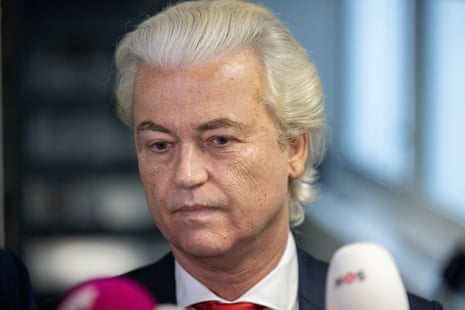
The announcement followed a brief early morning meeting of the four party leaders in the already fractious and fragile coalition, the first to include the far-right PVV, which has struggled to reach consensus on much since it was sworn in last July.
It is unclear what will happen next. The three remaining coalition partners could in theory try to stay on as a minority administration, but new elections later this year are seen as more likely. Schoof called an emergency cabinet meeting for early afternoon.
Frans Timmermans, the leader of the opposition Labour/Green alliance, said fresh elections were the only option. “I see no other way to form a stable government,” Timmermans, a former European Commission vice-president, said.
For our full story, see here:

 3 months ago
45
3 months ago
45
